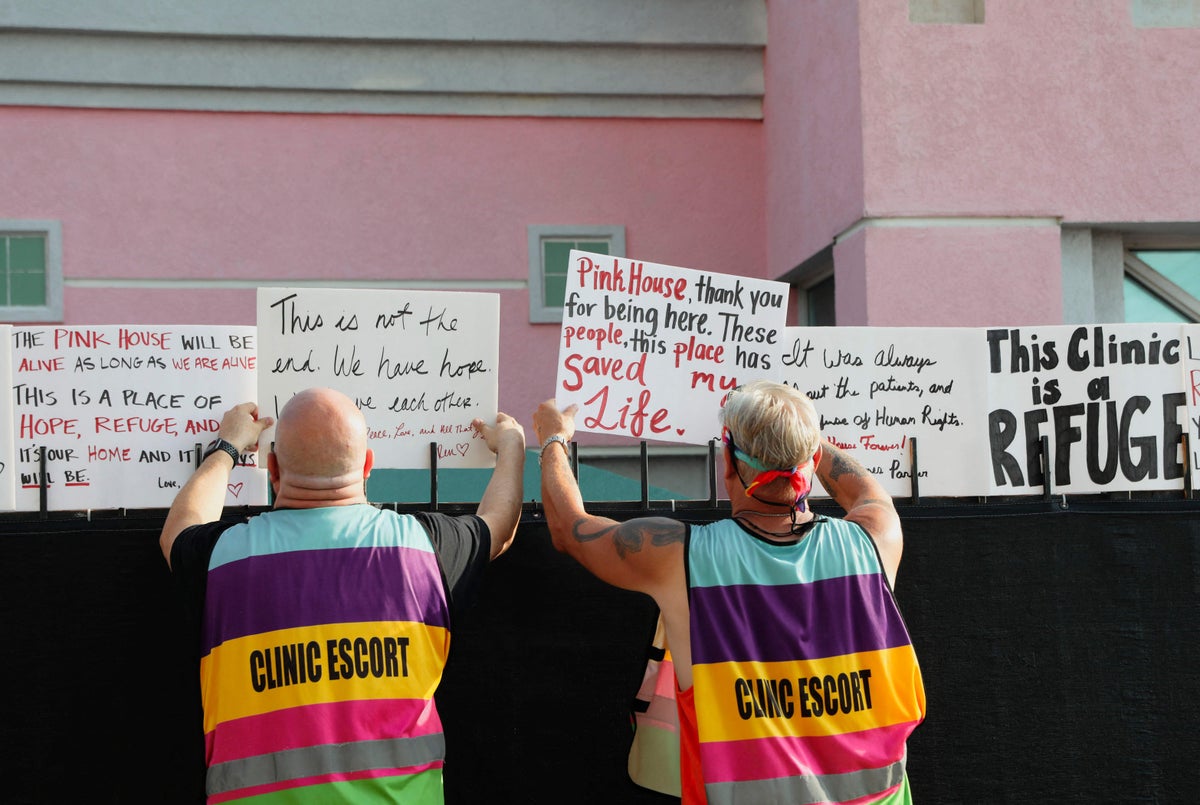
The last-standing Mississippi abortion clinic at the centre of the US Supreme Court decision to strike down Roe v Wade is ending its lawsuit against the state, where a near-total ban outlaws abortion care in most cases.
Jackson Women’s Health Organization’s “Pink House” clinic – named for its bright pale-pink exterior – has dropped a challenge to the state’s so-called “trigger” law enacted in the aftermath of the Supreme Court ruling to revoke the constitutional right to abortion care.
The state’s “trigger” law went into effect on 7 July after a Mississippi court denied the clinic’s motion to block it, forcing the clinic’s closure and the end of abortion care in the state. The state’s Supreme Court declined to hear an appeal, and the clinic’s owner Diane Derzis sold the building.
“Accordingly, we have dismissed our case on the clinic’s behalf,” said Rob McDuff, an attorney for the Mississippi Center for Justice, which is representing the clinic. “If the clinic is not in a position to reopen in Mississippi, it no longer has a basis to pursue this case in the courts.
Ms Derzis intends to open a clinic in Las Cruces, New Mexico, “where she can provide abortion care without fear of being put in prison for 10 years,” according to Mr McDuff.
Jackson Women’s Health Organization, which operated the last-standing abortion clinic in Mississippi before its closure, was central to the challenge against the state’s law banning abortion at 15 weeks of pregnancy. That case made its way to the Supreme Court, which upheld the law on 24 June while overturning the half-century precedent for abortion rights from the 1973 decision in Roe v Wade and its affirming decision in 1992’s Planned Parenthood v Casey.
The state also has had a “trigger” law on its books since 2007. That law outlaws abortion in nearly all instances from any stage of pregnancy, except in cases of rape or to save the life of the pregnant person. It does not make an exception for pregnancies from incest. That law went into effect following the Supreme Court’s decision in Dobbs v Jackson Women’s Health Organization.
“We will continue to work for the day that right is restored and that every Mississippian has the resources to make their own reproductive and family planning decisions,” Mississippi Center for Justice president Vangela Wade said in a statement.
Mississippi is among at least eight states that have effectively outlawed abortion entirely in the aftermath of the Dobbs ruling.
Lawsuits from abortion rights advocates and abortion providers have temporarily frozen some anti-abortion laws, and restraining orders are currently blocking such laws in Kentucky, Louisiana and Utah while their legal challenges play out in court.
As many as 26 states could outlaw abortion without the federal protection previously in place under Roe. Anti-abortion state lawmakers are working on more-restrictive laws that are expected to pass GOP-dominated state legislatures in the coming weeks and months.







